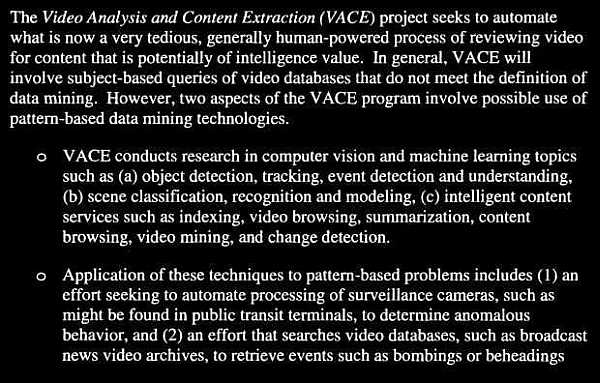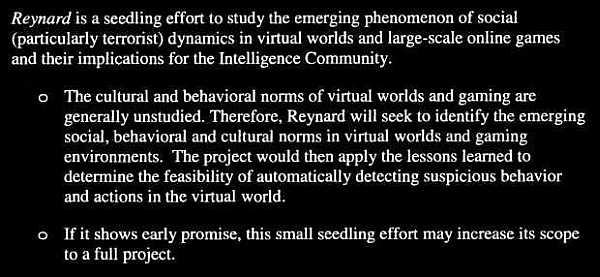
 “Then Moses said to God, ‘If I come to the people of Israel and say to them, “The God of your fathers has sent me to you,” and they ask me, “What is his name?” what shall I say to them?’ God said to Moses, ‘I AM WHO I AM.’ And he said, ‘Say this to the people of Israel, “I AM has sent me to you.”‘” – Exodus 3:13-14
“Then Moses said to God, ‘If I come to the people of Israel and say to them, “The God of your fathers has sent me to you,” and they ask me, “What is his name?” what shall I say to them?’ God said to Moses, ‘I AM WHO I AM.’ And he said, ‘Say this to the people of Israel, “I AM has sent me to you.”‘” – Exodus 3:13-14
“Moses said, ‘Please show me your glory.’ And he said, ‘I will make all my goodness pass before you and will proclaim before you my name “The LORD.” And I will be gracious to whom I will be gracious, and will show mercy on whom I will show mercy.'” – Exodus 33:18-19
In each of these sets of verses, Moses requests something of God and God responds with a grammatically identical statement about the essence of who He is. In the first set of verses in Exodus 3, Moses basically asks, “What is your name?” And the Lord’s response is, “I AM WHO I AM.” In the second set in Exodus 33, Moses asks God to show him His glory, His essence, as John Piper says, Moses wants to see the essentialness of God. What is it that defines the very heart of the glory of God? And the Lord’s response, is, “I will make my goodness pass before you … [and then He says, and this is the important part] I will show mercy to whom I will show mercy.” In a very simple layout of both of these sets of questions and answers,
Moses:”Who are you?” God:”I AM WHO I AM” Moses:”What is the essence of your glory?” God:”I have mercy on whom I have mercy.”
In the first response by God concerning His name, He makes a circular statement that He is the supreme authority, He always has been, always will be the infinitely powerful, almighty God, and that there are none like Him. The reason it is circular is because there is no higher authority by which to authenticate Himself. He authenticates Himself. “I AM WHO I AM.” He is before all things and in Him all things hold together. “I AM WHO I AM.” All things flow from Him and through Him and to Him. He is the infinite source of Himself, with no beginning and no ending. “I AM WHO I AM.” So much is contained within this statement about who God is. You cannot put Him in a box. You cannot contain Him or size Him up. He is simply beyond anything we can possibly comprehend. He has made known to us everything we need to know about Himself in His Word. The Scriptures reveal to us what we need to know as essentials concerning Him, though He is infinitely unknowable. “I AM WHO I AM,” is a perfect example. This statement is mind boggling and should cause us to sit in awe at who God really is, not who we want Him to be, which is an excellent bridging thought to the next point.
In second response concerning His glory, God is making a clear definition that strikes at the very heart of our disposition before Him: He is God, we are not. He created us for His purposes, not our own. That is a humbling reality for sinners who want to be their own god’s, namely, all of us. “I will have mercy on whom I have mercy.” This statement makes it clear that it is He who grants mercy toward sinners of His choice. Paul uses this very verse to lay out God’s sovereignty in salvation in Romans 9. We are vessels in the Potters’ hands. God is who He is, and He (literally in the Hebrew, according to John Piper) [mercies] whom He will [mercy]. In this verse, mercy in the Hebrew is used as a verb, not a noun, where God acts to accomplish something. This “mercying” is an act of God whereby He preserves whom He pleases from eternal destruction. It was accomplished ultimately through the death and resurrection of Jesus.
It is His choice whom He desires to turn from their unbelief and believe in Christ. We are in God’s debt as sinners and if He chooses not to act to preserve us and leave us in our rebellion and evil disposition toward Him, who are we to ask why? Do we not deserve wrath for the way we treat Him and His honor? So is God obligated to save and have mercy? No. God does what He pleases and has pure, excellent, and holy reasons for doing what He does. This is the very essence of what it means to be God according to this verse: He determines man’s destiny, and none can stay His hand or say to Him, “What are you doing?” (Daniel 4:35) And at the same time, the Scriptures clearly affirm that man is solely responsible for his rebellion. God is sovereign, man is responsible, is the most concise way to put it. The Scriptures confirm both of these truths, yet how they come together is not revealed.
“I [mercy] whom I [mercy].” Just let that sink in along with, “I AM WHO I AM.” This is the very definition of who God is by God Himself! We would do well to pay attention to it, as uncomfortable as it may be.
This is so hard for the sinful human soul to accept though because it seems dehumanizing for God to have that kind of ultimate power over us. As naturally depraved humans, we want to be free from all constraints, especially when it pertains to our eternal destinies. We want control, we want the reigns. Is that not the air we breathe in this country? It appears to many as if God is just mean and arbitrarily saves some and not others. This thinking is in error though. The Bible paints a completely different picture than what sinful man would come up with from his own “brilliant” thinking (namely Greek Determinism). God has had an overarching plan from eternity to bring about the most glory for Himself. To do anything less would be to dishonor His own name, and for Him to be God, He must glorify Himself to the uttermost. Let’s consider again what the verse is saying: “I [mercy] whom I [mercy].” This sounds strangely familiar to Paul’s language in Ephesians 1:5-6, “In love he predestined us for adoption as sons through Jesus Christ, according to the purpose of his will, to the praise of his glorious grace, with which he has blessed us in the Beloved.” There is one key phrase there we should hone in on: “to the praise of His glorious grace.”
So we return to Moses’ question, “What is the essence of your glory?” And God’s unfolded response in the New Testament is, “My gracious choice of sinners to be saved by my grace through faith in the cross of Jesus.” The essence, the essential glory of God is in his glorious grace, clearly demonstrated through the life, death, and resurrection of His Son, Jesus, on behalf of His chosen people. How beautiful! And it was planned from all eternity, before the foundation of the world (Ephesians 1:4). God has purposes in what He does that are always right, even if we cannot fathom them, even if we are scared by them. He is God, we are not. Bow before your Maker and mourn for your wickedness and beg Him to turn your heart to love Christ either for the first time, or if you do believe, for greater love for Him that you may find increasing rest, joy and peace in His presence.
To really see see the essence of the glory of God as revealed in these passages is to fear Him as we should and this causes us to flee to Christ for cleansing and mercy to change and conform to His image. We have no other hope, for there is no other name by which we are saved, as well as forever changed. However, at the same time, through Christ, we have no reason to fear God in His great wrath because we have been absolutely accepted on the basis of Christ’s perfect work, not ours, obtained through faith alone. So we do fear God as the One who could have passed over us and who will execute wrath when Christ returns to judge man, and we don’t fear at the same time because of Christ’s work to save us from the eternal destruction we all rightly deserve. It is a reverential fear, keeping us from sin because we know how injurious it is to 1) His glory when we rebel against Him, but also 2) His glorious grace in Christ toward us. But it is also an assured hope that if God is for us who can be against us?
If this Gospel is at the center of your life, that God is for you despite your willful sinfulness and rebellion, think about how your worldview, your day to day perspective on every part of life would be radically changed (myself included, may God have mercy on me, a sinner). It is this Gospel that produces true heart-change, true repentance from wickedness, when we see the depths of how awful we really are, and yet how great is the love of God in the work of Christ for sinners. It is the same Gospel I myself must return to continually because of the proneness of my own heart to sin. Ask for God to sink the truths of the Gospel deep within your soul to change you in every area of your life. He did not have to “mercy” you who believe, He chose to out of eternal love. To the praise of His glorious grace!
 Nominal Christianity, that is, Christianity without Jesus as the single greatest of all people above all others for all time; Christianity that sees Jesus as just a man, and not as the God-man who effectually purchased sinners with His blood on the cross, is no Christianity at all. Christianity without Christ at its center, not as just a good teacher or moral founder, but as God Himself come in the flesh, is a utterly dead religion. And it is clear Obama’s form of Christianity is dead because of his stance on something so abominable. I find it contradictory that he claims Christianity as his religion of choice, seeing as how Christianity itself affirms with Proverbs 6:17 that God hates hands that shed innocent blood, mainly because Obama himself has approved of legislation in Illinois in favor of live-birth abortions, which I have spoken of before. He may not himself perform the abortions, but that does not negate his culpability in approving of this horrendous, evil, blatant form of infanticide that the West has ever seen at the legal level.
Nominal Christianity, that is, Christianity without Jesus as the single greatest of all people above all others for all time; Christianity that sees Jesus as just a man, and not as the God-man who effectually purchased sinners with His blood on the cross, is no Christianity at all. Christianity without Christ at its center, not as just a good teacher or moral founder, but as God Himself come in the flesh, is a utterly dead religion. And it is clear Obama’s form of Christianity is dead because of his stance on something so abominable. I find it contradictory that he claims Christianity as his religion of choice, seeing as how Christianity itself affirms with Proverbs 6:17 that God hates hands that shed innocent blood, mainly because Obama himself has approved of legislation in Illinois in favor of live-birth abortions, which I have spoken of before. He may not himself perform the abortions, but that does not negate his culpability in approving of this horrendous, evil, blatant form of infanticide that the West has ever seen at the legal level.



 “Then Moses said to God, ‘If I come to the people of Israel and say to them, “The God of your fathers has sent me to you,” and they ask me, “What is his name?” what shall I say to them?’ God said to Moses, ‘I AM WHO I AM.’ And he said, ‘Say this to the people of Israel, “I AM has sent me to you.”‘” –
“Then Moses said to God, ‘If I come to the people of Israel and say to them, “The God of your fathers has sent me to you,” and they ask me, “What is his name?” what shall I say to them?’ God said to Moses, ‘I AM WHO I AM.’ And he said, ‘Say this to the people of Israel, “I AM has sent me to you.”‘” – 
 It is posited by many that God can either forgive sins or pay the debt for them, but that he cannot do both at the same time. The verses above speak utterly to the contrary though, particularly the statement, “Without the shedding of blood there is no forgiveness of sins.” This seems to indicate that God forgives sinners their infinite debt against Him precisely through a blood-shed sacrifice. And even more precisely in Hebrews, Christ is the long-awaited, final sacrifice of the Old Testament that has secured an eternal redemption by His blood because it is of infinite value and worth, offered on behalf of “those who are called” by the Father (
It is posited by many that God can either forgive sins or pay the debt for them, but that he cannot do both at the same time. The verses above speak utterly to the contrary though, particularly the statement, “Without the shedding of blood there is no forgiveness of sins.” This seems to indicate that God forgives sinners their infinite debt against Him precisely through a blood-shed sacrifice. And even more precisely in Hebrews, Christ is the long-awaited, final sacrifice of the Old Testament that has secured an eternal redemption by His blood because it is of infinite value and worth, offered on behalf of “those who are called” by the Father (